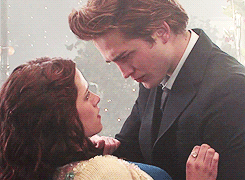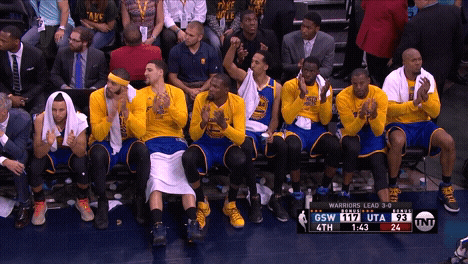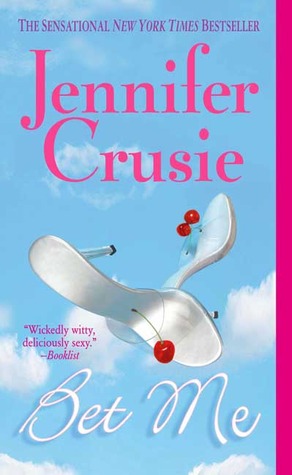I think a lot about friendship in romance.
When I say “a lot,” I mean that I think about it almost as much as the actual romance, the central relationship that’s being built between (usually) two main characters. And while that might seem odd given our cultural understanding of the genre, friendship is part of my personal origin story with romance.
It’s the reason I started reading it in the first place.
Let me explain: I came to the genre at a lonely time in my life. I was happily married, but my husband and I had recently started over in a brand new place, and that new start meant that my dearest, most long-term friendships were suddenly long-distance. I knew that my friends were still there for me; I knew we were still emotionally close. But the fact that we weren’t geographically close was painful, and while I navigated the long process of making new connections (making friends as an adult is hard, y’all!), I found a great deal of comfort in books. And when I happened to pick up my first romance—a worn but still cheery-looking paperback of Jennifer Crusie’s Bet Me—I felt as overjoyed by the friendships I read about in the story as I did about the growing connection between Min and Cal.
The friendships I saw in those early days of reading romance kept me company. They reminded me of the friendships I still had and they encouraged me to keep trying in my own efforts to make new friends in my new home. They also reiterated something I already knew, but that I might’ve been inclined to forget in a new place, with my husband as my only familiar support system: people need people. And one person can’t be all your people.
Unless, I guess, you’re a cishet man.
Last week, Harper’s Bazaar published a terrific piece that’s been making the rounds on Romance twitter and beyond. In “Men Have No Friends and Women Bear the Burden,” Melanie Hamlett explores the ways in which toxic masculinity stunts intimacy between heterosexual men, who are raised in a culture that encourages them to suppress their emotions, especially in front of other men.
In front of women, though? Hamlett shows all the ways in which these men become—borrowing a term from a popular 2016 tweet—“emotional gold diggers,” relying on their wives, partners, and girlfriends to carry them through personal and professional crises great and small. Raised in a world that makes them “isolated and incapable of leaning on each other,” Hamlett writes, heterosexual men are draining the emotional energy out of their romantic partners.

Hamlett’s essay focuses on a brand of masculinity that is highly westernized, and it doesn’t explore the many important differences between subcultures within western masculinity. However, as an exploration of how many women living in a patriarchal culture feel about their emotional burdens in relation to men, the essay is, in my opinion, required reading in general. And as a romance reader and writer who has long been drawn to friendship storylines, it also feels like required reading in specific. Is our genre—especially in its depiction of the happily ever after between cishet men and women—sometimes guilty of setting up heroines for a lifetime of being bankrupted by emotional gold diggers?
I suspect the answer is pretty complicated. After all, in Crusie’s Bet Me, Min isn’t the only one who has a group of friends—Cal does, too. Moreover, the very structure of romance—especially the “low” or crisis moment, wherein our main characters are separated, seemingly lost to each other forever—often seems to force the kind of emotional intimacy between men that maybe doesn’t happen all that often in real life. I’ve read countless romance novels that feature a down-and-out hero revealing his heartbreak to another man, a man who ends up giving him the perspective and advice he needs to get moving—to apologize, or to forgive, or to find some kind of compromise that allows him to be with the woman he loves. Indeed, as I’ve written about on this site before, romances often seem to show men developing the kinds of emotional tools that we might wish they had in a culture that still valorizes a certain (disappointing) type of masculinity. Perhaps friendship—close, emotionally intimate friendship—is a tool that men are more likely to have in the pages of romance novels than they are in the actual days of our lives.
But even if we allow that emotional intimacy between men might be more prevalent in romance, I don’t think we should ignore the ways in which the genre still sometimes limits such expressions of intimacy. Stop me if you’ve heard this one before, fellow romance readers: hero tells his buddy about his feelings. Buddy responds with earnest commiseration and advice.
Then one of them says, “Are we gonna paint each other’s nails now or something?”

A line like this sends the message that men cannot remain in a space of closeness, that they must puncture that space with reminders that sharing confidences or concerns has devalued their masculinity in some way. That they attempt to re-assert that masculinity with a joke about “women’s stuff” like painting one’s nails or “watching chick flicks” or, hell, even “crying,” shows these characters participating in the kind of flippant misogyny many of us are trying to push back against in our everyday lives. It also shows that these characters might see emotional closeness as a one-off, a “break glass in case of romantic emergency” situation, something that’s not likely to happen again.
And that might mean our heroine gets stuck with a gold digger.
Let me be clear: I’m pretty sure I’ve laughed before at those flippant, jokey barbs about nail-painting. I may have even written something similar. Very few of us are immune to the patterns of toxic masculinity, which is why we might participate—in ways both implicit and explicit—in messaging that suggests men’s emotions must be limited, practiced only within the boundaries that many (though not all—this is culture- and subculture-specific) of us have been taught about since our childhood. But the more I think about this issue—the more I consider the differences between how we read and represent friendships between men and women in romance novels, the more I wonder whether we’re imposing boundaries that are even more subtle than the kind of feelings-extinguishing dialogue I’ve described above.
Are we making it so, for example, our heroes can only have “friends” who have been made in certain traditionally “masculine” contexts? Teammates or colleagues, but no childhood friends? Are we making it so our heroes have to keep it in their families, only sharing with their (also extremely attractive past or future hero) brothers? Are we making it so emotional conversations between men only happen when there’s alcohol involved? Are we making those conversations accidental rather than deliberate—a hero who never intends to share at all, but somehow finds himself backed into a corner? Are we only representing this sharing as something that happens when our hero is romantically vexed, and not troubled by grief, or professional insecurity, or a plain and simple lousy day? Are we never mentioning routines and traditions between men who are friends; are we never showing them engaged in such traditions?

None of these questions are meant to suggest that there aren’t lovely, earnest friendships represented between men in romance (I’ve got a few favorites, and would love to hear about yours). And none of them ask whether the women in romance novels enable and even encourage this emotional dependency, a phenomenon that Hamlett explores briefly in her article. Still, considering these questions in light of Hamlett’s work has made me wonder whether—as a reader and as an author—I might do better in thinking about friendships between men in books. If I want to believe in or craft the best happy ending possible, shouldn’t I be thinking about the emotional labor my heroine is going to be stuck with for the duration? Shouldn’t I be thinking about whether this man will lean on her for every single one of his emotional needs?
Maybe all this is moot in a culture where we’re still mired in ways of thinking that punish men for showing their feelings. Maybe many of our beloved romances are simply representing the culture as we have it. But just as we push the boundaries in our “low” moments—just as we open the door for more emotional intimacy between cishet men than is sometimes available to them in real life—maybe we should be pushing the boundaries for how that intimacy is managed and nurtured. Maybe we should be doing more on page to craft heroes who prove that they won’t drain the life out of the women they’ve fallen in love with. Maybe we should be showing that our heroines won’t be the only ones to whom our heroes appeal for help.
After all—as Hamlett’s article proves—that happily ever after depends on it.













